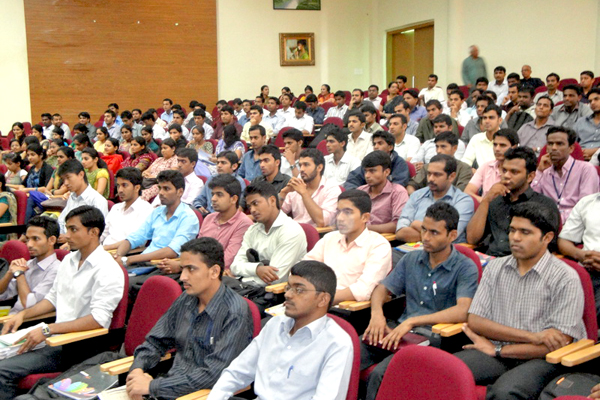
Mangalore, August 18: Dr Shafik Dharamsi, Faculty Fellow in Residence, Liu Institute for Global Issues, Global Health Network, British Columbia, Canada visited AIMIT campus of St Aloysius College, Mangalore on August 17. He gave a talk to the MBA students on Corporate Ethics.
Dr Safik highlighted the importance of teaching of ethics in Management Education and said that the goal of Management education should turn out ethical leaders and not persons who are greedy of money. Citing many global examples where greed by some CEOs has led to the collapse of many global enterprises, he told the students that education should promote right type of leaders for tomorrow. He appreciated the Jesuit Education which puts emphasis on ethics in corporate world.
He also said that competence should not be at the cost of conscience. He also mentioned that we need to be aware of what is happening around and be proactive. The problem today is that people are morally deaf and remain silent to the issues and problems in the society and the corporate sector. He stated that 50 per cent of Canadian students and 70 per cent of US students had indulged in cheating for their exams. He showed how very little of the tax money is needed to eradicate the real causes in the world like basic education, poverty and food; whereas people spent $48 million in cosmetics and the governments invested $780 million on military.
At the end he mentioned how a visit to refugee camp during his medical profession had triggered a change in his life.
Jaswin Joseph, a student of II MBA proposed vote of thanks. Fr. Oswald Mascrenhas S J presented a memento Dr Shafik.
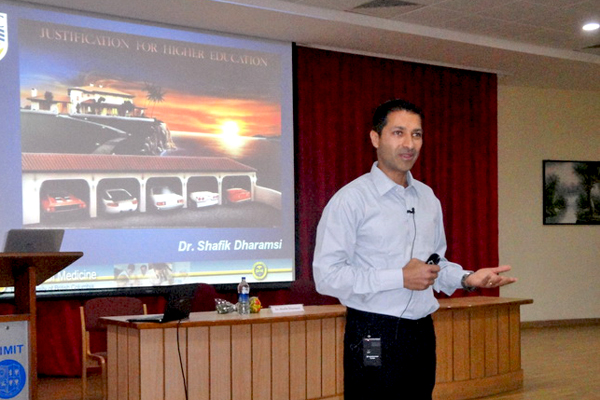
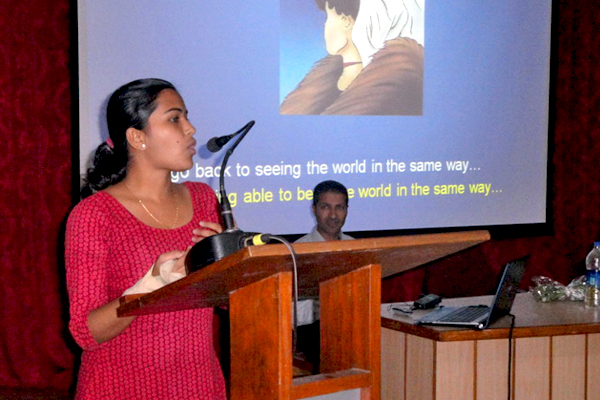
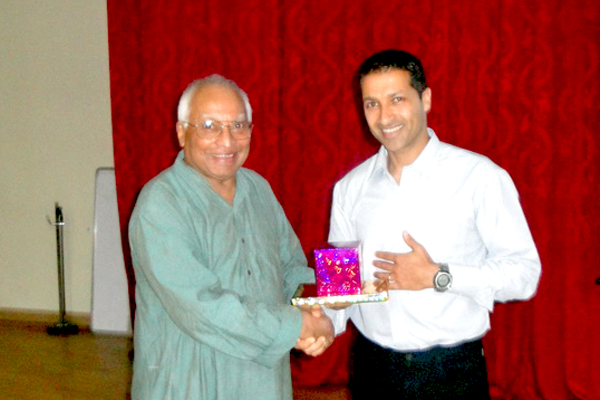
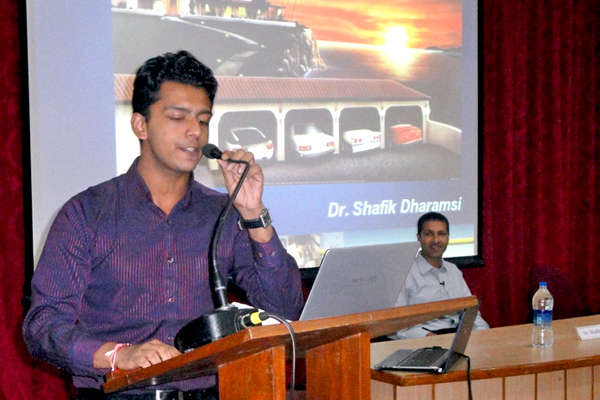
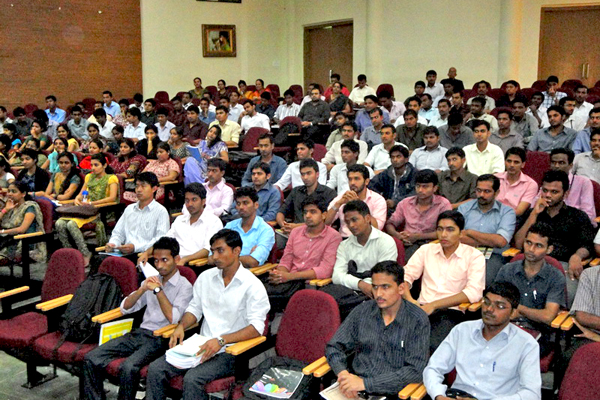





Comments
Add new comment